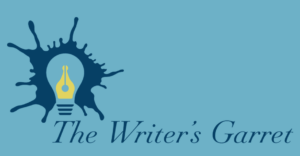Fall Series, No. 7: An Interview with Natasha Sajé
[et_pb_section bb_built=”1″ admin_label=”section”][et_pb_row admin_label=”row”][et_pb_column type=”4_4″][et_pb_text admin_label=”Text” background_layout=”light” text_orientation=”left” use_border_color=”off” border_color=”#ffffff” border_style=”solid”]

We interviewed poet and professor Dr. Natasha Sajé, author of Red Under the Skin (Pittsburgh, 1994); Bend (Tupelo Press, 2004); Vivarium (Tupelo Press, 2014); and Windows and Doors: A Poet Reads Literary Theory (Michigan, 2014). Her many essays have appeared in such venues as the New York Times, the Chronicle of Higher Education, and Liberal Education. Sajé teaches at Westminster College in Salt Lake City and in the Vermont College of Fine Arts M.F.A. in Writing program.
What you’re reading right now:
Vikram Seth’s The Golden Gate, a novel in verse I missed when it came out in 1986. I’m enjoying it now, including the dated references to pre-internet dating and the Bay area. Kiki Petrosino’s Witch Wife and Evie Shockley’s the new black, books I’ll be teaching. An anthology of appropriated prose forms, Fakes, in preparation for a course on epistolarity.
How do you decide what goes on your reading list? Word of mouth, reviews, friends?
Often I learn about books when my Vermont MFA students write about them in their letters. I also trust the opinions of the women in my poetry writing group. Aside from that, it’s sometimes whatever falls into my hands. A dinner guest gave me The Golden Gate, for instance. But when a writer whose work I love is on my radar, I get their new books. When I lived a few blocks from the Johns Hopkins University library in the nineties, I’d set aside an afternoon to comb new books (which sat together on a separate shelf). I’d haul them to a table, scan and sniff, and divide into three groups: must read, need more time, and leave behind. I miss that! The internet—even with the “look inside this book feature”—is no substitute for the tactile experience of the book.
You’re organizing a literary dinner party. Which three writers, dead or alive, do you invite?
Henry James, of course, because he would be kind and interesting and he would enjoy the food. And because I spent so many years reading his work and about him, we could move rapidly from small talk. On the other hand, I would want, rather desperately, for him to like me, which might be a problem because he’d recognize my sycophancy and try to mask, with refined politeness, his distaste for it. And I should say Gertrude Stein—she would like the food and Alice and I would confer about recipes—but Gertrude and Henry wouldn’t get along. So let me start over: George Eliot, Sappho, and Oscar Wilde. I think Oscar would have us all in stitches, George Eliot would burn with her steady flame, and Sappho—what would she be like? It’s impossible to predict the kind of dinner guest a writer would be simply from her own writing.
Classic novel you recently read for the first time:
To try to answer this question, I googled “classic novels” and found lots of titles, most of which I have read, none of which I read recently for the first time. One problem is that until the age of forty, I was a novel addict. Poetry forces me to slow down.
A book you just couldn’t finish:
Irène Némirovsky’s Suite Francaise. I got stuck at page 70 and put it down, feeling guilty because it came with recommendations and a poignant back story. Then I happened on the BBC film version in Netflix, watched it, and understood that the film focused the book.
A book you just couldn’t put down:
Most fiction and non-fiction—I used to teach speed reading so I read prose “for the gist.” If it’s really good, I’ll read it again more slowly and/or teach it. I couldn’t put down Jhumpa Lahiri’s The Lowland. This week I finally read H is for Hawk (fast) and I will go back to it, probably.
Favorite place to read:
Anyplace. At a party of adults recently I saw a nine year old girl immersed in a book she had brought. Whenever the adults moved into her space, she moved into another. That’s how I feel about books—they make the space mine.
What do you read when you’re working on a book?
I just finished a memoir-in-essays, and while I was writing that, I read hundreds of memoirs and essay collections. It’s my nature to learn as much from negative examples as positive ones. I’m always working on poems, and thus, am always working on a poetry book, whose shape I discover as I write the individual poems. I try not to repeat myself, either with poems or with books, so I look for writers who will show me a way out of my habits.
One book every student should read:
I don’t believe in a “must read” list, because I don’t believe that there are universal and timeless books. But OK, it might be interesting if every student of poetry in English read Paradise Lost. For the syntax as well as for the vision.
What do you have coming up?
In November I’ll be in Dallas and Austin, and I’m excited about the Modes In Poems workshop at The Writer’s Garret. I discovered that group workshops often cause writers to expend a lot of unproductive energy. They focus on the art work and rugs in a house instead of imagining a different structure. Identifying a dominant mode in a poem, and then asking whether another mode might better serve the poem, is an efficient and holistic way of understanding the poem. We don’t get distracted. It’s a tool I use often in my own revisions.

This interview is the seventh in our Fall Series. To read from the beginning, click here. Natasha’s upcoming workshop, Modes In Poems, will take place at The Writer’s Garret on Saturday, November 18. Find out more here.
[/et_pb_text][/et_pb_column][/et_pb_row][/et_pb_section]
